Attukal Temple | Attukal Bhagavathy Temple
Attukal Temple | Attukal Bhagavathy Temple is a Hindu religious shrine at Attukal in Thiruvananthapuram, Kerala, India. The temple is renowned for the annual Attukal Pongala festival, in which over three million women participate. A festival that has figured in the Guinness Book of World Records for being the single largest gathering of women for a religious activity, the Attukal Pongala continues to draw millions of women with each passing year.
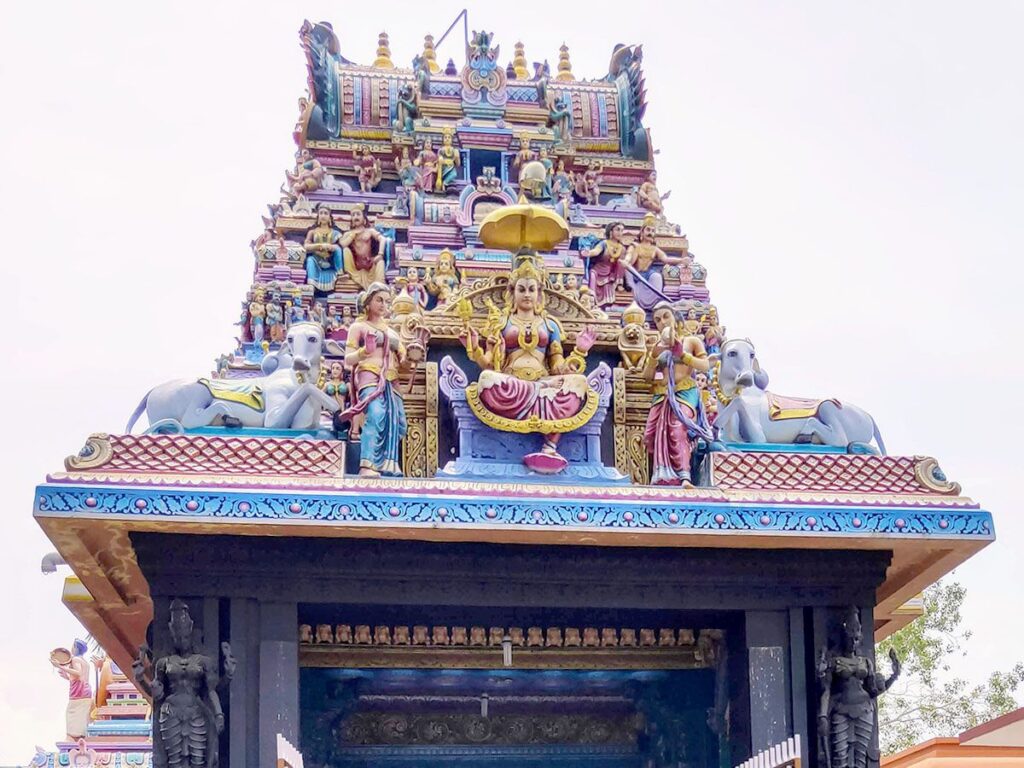
Contents
- 1 Attukal Temple History:
- 2 Legend of Attukal Temple | Attukal Bhagavathy Temple:
- 3 Significance of Attukal Temple:
- 4 Myths of Attukal Temple:
- 5 Attukal Temple Timing and Rituals:
- 6 Places to visit near Attukal Temple:
- 7 FAQ:
- 7.0.1 Q: What is Attukal Temple?
- 7.0.2 Q: Who is the presiding deity of Attukal Temple?
- 7.0.3 Q: What is the significance of the Attukal Pongala festival?
- 7.0.4 Q: When does the Attukal Pongala festival take place?
- 7.0.5 Q: What is the Guinness World Record held by Attukal Temple?
- 7.0.6 Q: Can men participate in the Attukal Pongala festival?
- 7.0.7 What is the dress code for Attukal Temple?
- 7.0.8 What are the facilities available at Attukal Temple?
- 8 How to reach Attukal Bhagavathy Temple:
- 9 Google Maps:
Attukal Temple History:
The history of the Attukal Temple is closely linked to the legend of Kannaki, the protagonist of the epic Tamil poem Silappatikaram. According to the legend, Kannaki was a virtuous woman who was falsely accused of theft and her husband Kovalan was killed. In her grief and anger, Kannaki cursed the city of Madurai, where the injustice had taken place, and it was destroyed by fire.
Kannaki then traveled to Kerala, where she is said to have rested at the spot where the Attukal Temple now stands. She is believed to have blessed the people of the region with her presence, and the temple was built in her honor.
The Attukal Temple is one of the most important pilgrimage sites in Kerala. It is particularly popular among women, who make up the majority of the temple’s devotees. The temple is also known for its annual Attukal Pongala festival, which is one of the largest religious gatherings in the world.
The Attukal Temple is a significant cultural and religious landmark in Kerala. It is a place of worship for Hindus from all over the world, and it is also a popular tourist destination.
Here are some of the important events in the history of the Attukal Temple:
- 8th century: The temple is believed to have been built in the 8th century AD.
- 17th century: The temple was renovated in the 17th century by the Travancore royal family.
- 19th century: The temple was again renovated in the 19th century.
- 1997: The Attukal Pongala festival was entered into the Guinness Book of World Records for being the largest gathering of women in the world.
- 2009: The Attukal Pongala festival was again entered into the Guinness Book of World Records for being the largest gathering of women in the world.
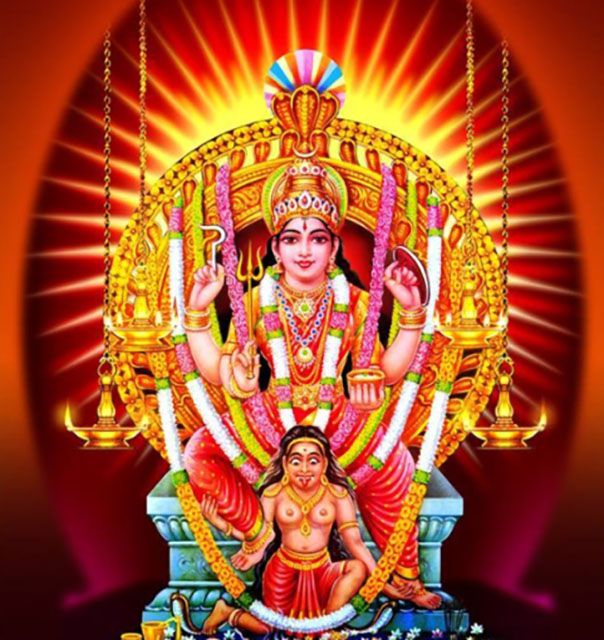
Legend of Attukal Temple | Attukal Bhagavathy Temple:
According to mythology, Kannaki, the chaste wife of Kovalan, a merchant from Madurai, was falsely accused of stealing the queen’s anklet and her husband was beheaded. Incensed by this injustice, Kannaki invoked the power of her chastity and burnt down the city of Madurai.
Kannaki then traveled to Kerala, where she took rest under a tree in Attukal. An old man named Uthayanan saw her and offered her food and shelter. Kannaki revealed her true identity to Uthayanan and told him that she wanted to build a temple at that spot. Uthayanan agreed and helped Kannaki build the temple.
The Attukal Bhagavathy Temple is believed to be the spot where Kannaki attained salvation. The temple is one of the most important pilgrimage centers in Kerala and is visited by millions of devotees every year.
Attukal Pongala
The Attukal Pongala is a major festival celebrated at the Attukal Bhagavathy Temple. It is the largest religious gathering of women in the world, with over 10 million devotees participating every year.
The festival is held in February or March and lasts for 10 days. On the ninth day, devotees prepare pongala, a sweet dish made of rice, jaggery, and ghee. The pongala is offered to the goddess as a token of gratitude for her blessings.
The Attukal Pongala is a vibrant and colorful festival that showcases the rich culture and traditions of Kerala. It is a time for devotees to come together and celebrate the power of the divine feminine.
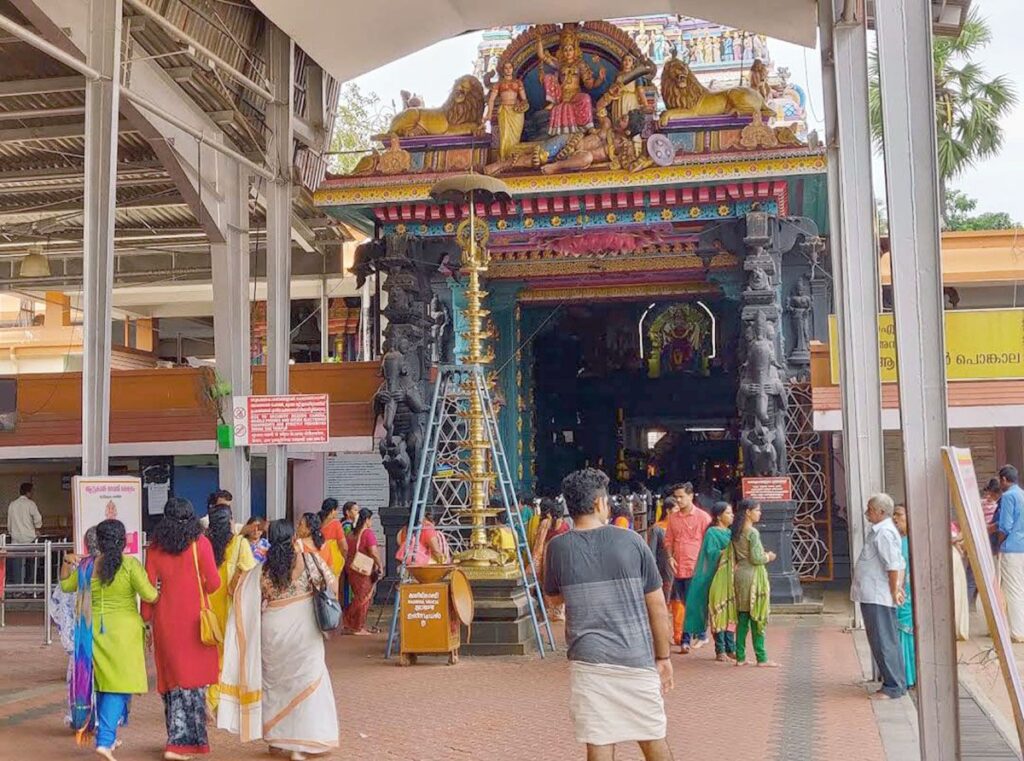
Significance of Attukal Temple:
Religious:
- Dedicated to Goddess Bhadrakali: Primarily worshipped as the powerful and protective Bhadrakali, the temple also sees her as embodiments of Saraswati (wisdom), Lakshmi (prosperity), and Maha Kali (power).
- Pongala Festival: Most renowned for the “Attukal Pongala,” a 10-day festival culminating in the largest annual gathering of women for a religious activity, as recognized by Guinness World Records. Millions of women offer “Pongala,” a sweet rice pudding, seeking blessings and appeasement.
- “Sabarimala for Women”: Often called the “Sabarimala for Women,” it draws many women devotees who might not be able to visit the famed Sabarimala temple due to traditional restrictions.
Cultural:
- Women-Centric Rituals: The Pongala festival empowers women and fosters a strong sense of community and shared faith. Women play an active role in all aspects of the festival, preparation, and offering.
- Kerala Tradition: The temple and festival showcase traditional rituals, attire, and cuisine, offering a glimpse into Kerala’s rich cultural heritage.
Social:
- Community Building: The festival encourages unity and cooperation. Neighbors and families come together to prepare the Pongala, fostering social bonds and strengthening community spirit.
- Economic Impact: The large-scale gathering has a significant positive impact on the local economy, boosting tourism, trade, and employment opportunities.
Historical:
- Ancient Origins: Estimated to be centuries old, the temple holds historical significance within the region and represents a long-standing tradition of worship.
- Kannaki Connection: Some associate the temple deity with Kannaki, the protagonist of the epic Tamil poem “Silappadhikaram,” adding further cultural and literary dimension.
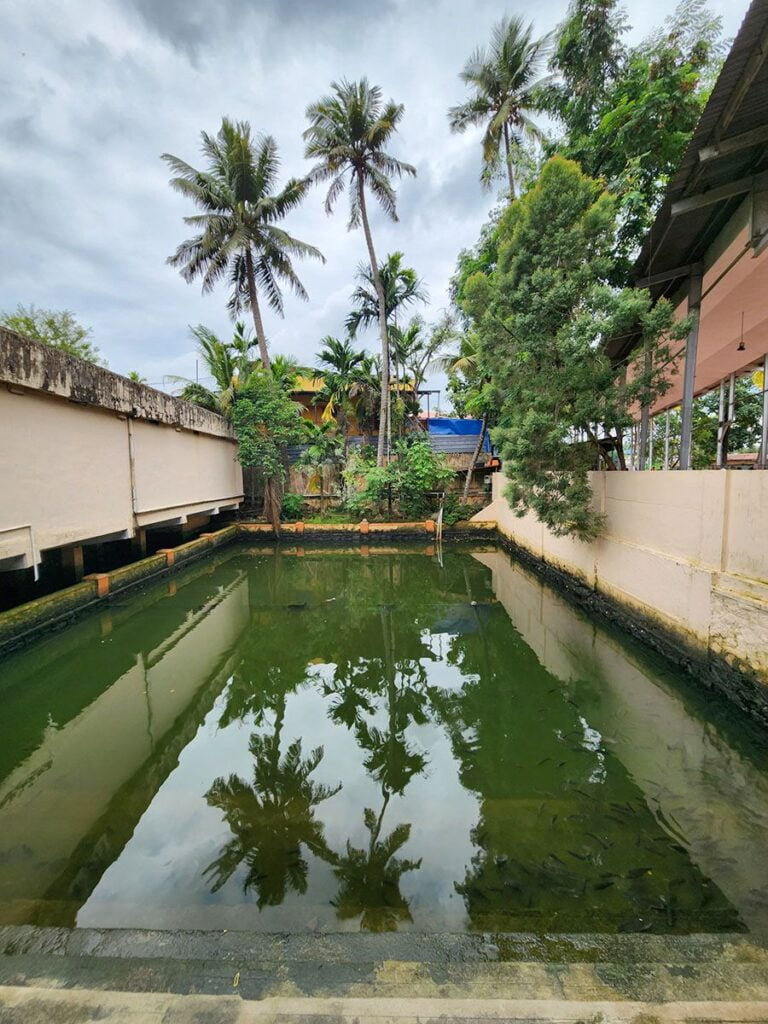
Myths of Attukal Temple:
There are several myths and legends associated with the Attukal Temple. One of the most popular myths is that the temple was built by Kannaki herself, after she burnt down the city of Madurai in anger. According to this myth, Kannaki traveled to Kerala and stayed at the Attukal Temple for a while. During her stay, she is said to have subdued her cosmic rage and attained a state of peace.
Another myth associated with the Attukal Temple is that the goddess Kannaki is the incarnation of the goddess Bhadrakali. Bhadrakali is a fierce form of the goddess Parvati, and is often worshipped as a protector against evil forces. According to this myth, Bhadrakali appeared to Kannaki in a dream and instructed her to build a temple at the spot where she was staying.
The Attukal Temple is also associated with the legend of the Chera king, Cheraman Perumal. According to this legend, the king was once cured of a disease by the goddess Kannaki. In gratitude, he built a temple for the goddess at the spot where she had cured him.
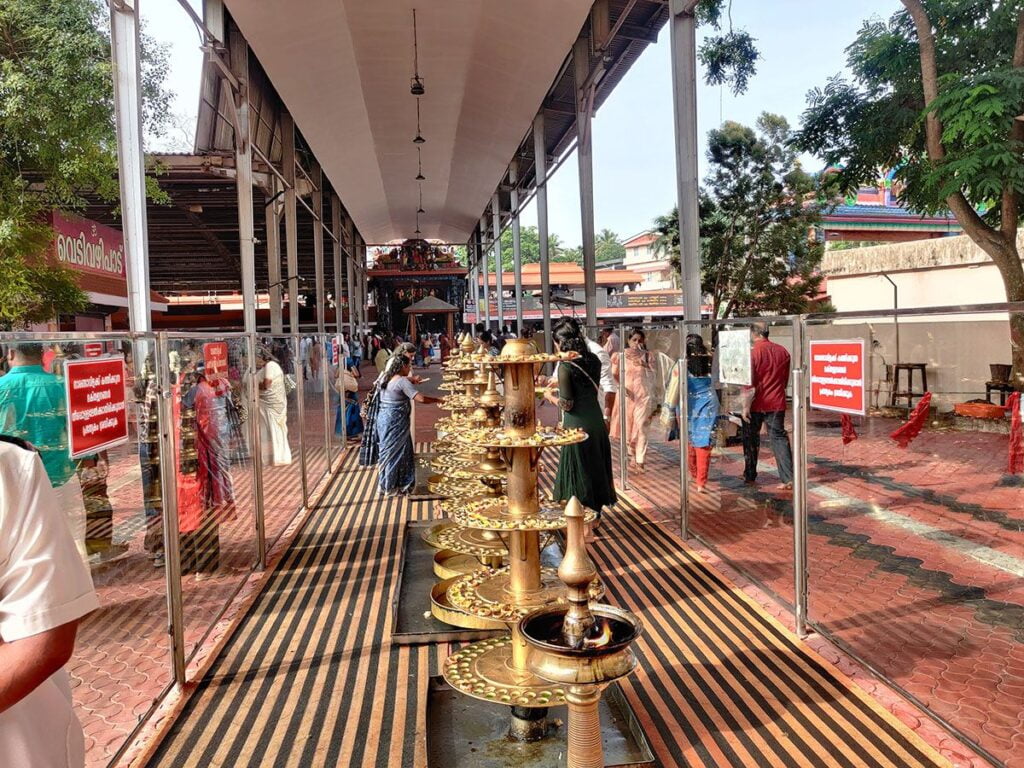
Attukal Temple Timing and Rituals:
The Attukal Bhagavathy Temple in Thiruvananthapuram, Kerala, is famous for its Attukal Pongala festival, a 10-day religious event culminating in a massive offering of rice pudding by millions of women. However, the temple itself has regular daily rituals and timings that devotees can follow throughout the year.
Daily Darshan Timings:
- Morning: 4:30 AM – 12:00 PM
- Evening: 5:00 PM – 8:00 PM
Important Rituals:
- Palliyunarthu (Waking of the Goddess): 4:30 AM
- Usha Sreebali (Morning Offering): 6:50 AM
- Kalabhishekam (Consecration with Sandalwood Paste): 7:00 AM
- Pantheeradi Pooja (Special Rite): 8:30 AM
- Ucha Pooja (Noon Rite): 12:00 PM
- Deeparadhana (Lamp Offering): 6:45 PM
Attukal Pongala Festival:
The timings for the Attukal Pongala festival vary each year depending on the Malayalam calendar. The next festival will be held on March 7, 2025. Here’s a breakdown of the key events:
- Day 1: Kappukettu and Kudiyiruthu ceremony (embellishing the idol with bangles)
- Day 9: The main Pongala day, when women prepare and offer rice pudding to the Goddess. The exact timing for lighting the hearths is announced by the temple priests, usually around 10:00 AM.
- Day 10: Kuruthitharpanam (concluding ceremony) at night
For more details regarding events and registration please visit the official website of Attukal Temple http://www.attukal.org/.
Places to visit near Attukal Temple:
- Padmanabhaswamy Temple: One of the most famous temples in Thiruvananthapuram, known for its architectural beauty and historical significance. It is dedicated to Lord Vishnu.
- Napier Museum: Located in the heart of the city, this museum houses a rare collection of archaeological and historic artifacts, as well as an excellent display of traditional Kerala art and craft.
- Kovalam Beach: A popular beach destination just a short drive from Attukal Temple. Enjoy the sandy shores, water activities, and the vibrant beachside atmosphere.
- Kuthira Malika (Puthen Malika) Palace: Located near Padmanabhaswamy Temple, this palace is known for its unique architecture and is a showcase of traditional Kerala art and craftsmanship.
- Shanghumukham Beach: Another beautiful beach in Thiruvananthapuram, known for its serene atmosphere and the iconic sculpture of a mermaid known as ‘Matsya Kanya.’
- Kowdiar Palace: A magnificent palace with a blend of Kerala and colonial architectural styles. While the palace itself is not open to the public, the surrounding areas are worth exploring.
- Vellayani Lake: About 7 kilometers from Attukal Temple, Vellayani Lake is the largest freshwater lake in Thiruvananthapuram. The tranquil surroundings make it a pleasant spot for relaxation.
- Aruvikkara Dam and Temple: Located around 16 kilometers from the city, Aruvikkara is known for its dam and the ancient Bhagavathy temple situated on the banks of the Karamana River.
- Vizhinjam Lighthouse: Located in Vizhinjam, this lighthouse offers panoramic views of the Arabian Sea and the surrounding coastline.
- Thiruvananthapuram Zoo: Also known as Trivandrum Zoo, it is one of the oldest zoos in India, showcasing a variety of wildlife species.
FAQ:
Q: What is Attukal Temple?
A: Attukal Temple is a renowned Hindu temple located in Thiruvananthapuram, the capital city of the southern Indian state of Kerala. It is dedicated to the goddess Bhagavathy, specifically in the form of Kannaki, an incarnation of Parvati. The temple is popularly known for hosting the annual Attukal Pongala festival, which holds the Guinness World Record for the largest gathering of women for a religious activity.
Q: Who is the presiding deity of Attukal Temple?
A: The presiding deity of Attukal Temple is the goddess Bhagavathy, worshipped in the form of Kannaki. Kannaki is a legendary figure from the Tamil epic “Silappatikaram” and is considered a manifestation of the goddess Parvati.
Q: What is the significance of the Attukal Pongala festival?
A: Attukal Pongala is a significant annual festival celebrated at Attukal Temple. It is a predominantly women-centric event where devotees gather to prepare a special offering called Pongala, a sweet dish made of rice, jaggery, coconut, and other ingredients. The festival usually takes place in February or March and attracts a massive gathering of women from different parts of Kerala and beyond. The Pongala festival at Attukal Temple has gained international recognition for its scale and devotion.
Q: When does the Attukal Pongala festival take place?
A: The Attukal Pongala festival is usually celebrated in the Malayalam month of Kumbham, which corresponds to February-March in the Gregorian calendar. The exact date of the festival varies each year.
Q: What is the Guinness World Record held by Attukal Temple?
A: Attukal Temple holds the Guinness World Record for the largest gathering of women for a religious activity. The record was set during the Attukal Pongala festival, where millions of women come together to participate in the ritualistic cooking of Pongala.
Q: Can men participate in the Attukal Pongala festival?
A: The Attukal Pongala festival is primarily a women’s festival, and traditionally, men do not actively participate in the ritual of cooking Pongala. However, men are welcome to visit the temple and participate in other aspects of the festival, such as rituals and ceremonies.
What is the dress code for Attukal Temple?
Men are required to wear dhoti and women are required to wear saree, long skirt, or traditional Kerala attire. Modern casual attire, especially shorts and sleeveless tops, are not allowed within the temple premises.
What are the facilities available at Attukal Temple?
The temple has a number of facilities for pilgrims, including a cloakroom, a rest area, and a canteen. There are also a number of shops selling religious items and souvenirs.
How to reach Attukal Bhagavathy Temple:
By Air: The nearest airport to Thiruvananthapuram is the Trivandrum International Airport. From the airport, you can hire a taxi or use other local transportation to reach Attukal Temple.
By Train: Thiruvananthapuram Central Railway Station is the primary railway station in the city. From there, you can take a taxi, auto-rickshaw, or use other local transportation to reach Attukal Temple.
By Road: If you are traveling by bus, Thiruvananthapuram has a well-connected bus service. You can reach the city by state-run or private buses and then use local transportation to get to the temple.
Local Transportation: Taxis, auto-rickshaws, and local buses are commonly available for commuting within Thiruvananthapuram. You can hire a taxi or use an auto-rickshaw to reach Attukal Temple from various points in the city.
Address of Attukal Bhagavathy Temple: Attukal Bhagavathy Temple, Attukal, Manacaud P.O., Thiruvananthapuram – 695009, Kerala, India.
